EXCLUSIVE: When One US Missionary Dared to Share the Gospel in Putin’s Russia…
MOSCOW – Twenty-five years after the collapse of communism, the fight to defend religious freedom in the Russian Federation still rages.
Seven months ago, Donald Ossewaarde became the first American convicted of breaking a Russian law that bans preaching the Gospel outside a registered church.
Now he's going before Russia's Supreme Court – and the outcome could have huge ramifications for all Christians in the country.
Spreading the Gospel
The story of Ossewaarde and his wife, Ruth, began 14 years ago when they moved to the Russian city of Oryol.

"My area is 250 miles south of Moscow and they're very, very communist," Ossewaarde told CBN News in his first American TV interview. "They [people in Oryol] have a very Soviet mentality in that area."
The couple decided Oryol would be a good place to settle down, buy a small home and start evangelizing.

"I'm there to give them the Gospel of Jesus Christ, to tell them of the good news of salvation," Ossewaarde said.
To do that, these Baptist missionaries placed Gospel tracts, with their home address, in every single mailbox of each apartment building in Oryol.
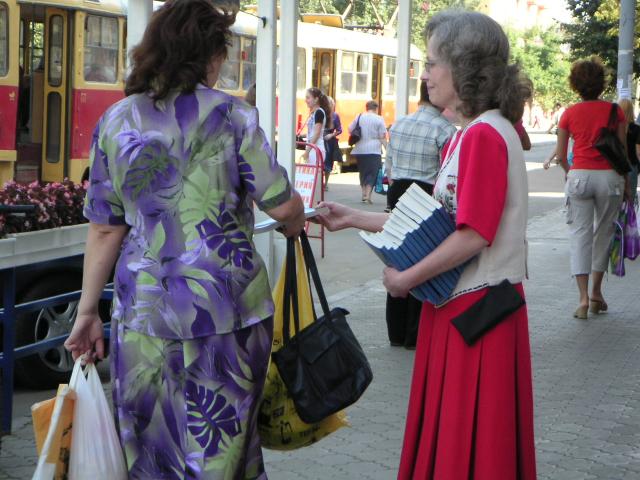
"There are 320,000 people in Oryol, so everybody has received a personal invitation from me with a plan of salvation," Ossewaarde said.
And people responded. CBN News obtained footage of Ossewaarde preaching and worshipping in his living room...
...and conducting a water baptism of a Russian believer.
"Everybody knows we are there. We're operating openly. It's no secret what we are doing and why we are doing it," the Baptist missionary said. "We are the only Americans within 250 miles so everybody in town knows that I am the American."
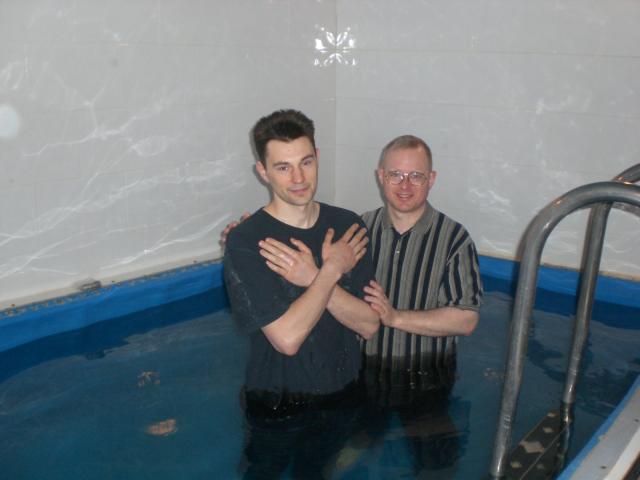
A 'Troubling' Russian Trend
But on Sunday morning, August 14, 2016, their work came to a screeching halt.
"I had been expecting it for three weeks before that, and then when they [police] walked in; I thought, 'Ok, here goes.'"
Let's pause here for a moment.
Twenty-five days before, on July 20, Russian President Vladimir Putin signed new amendments to a law that govern religious life.
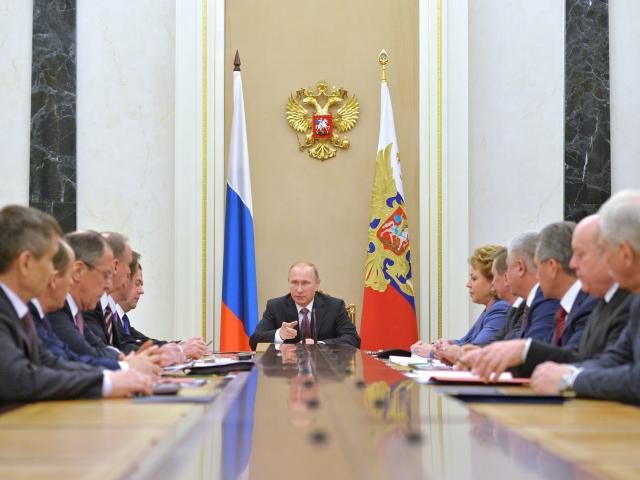
Under the guise of confronting terrorism, Putin gave authorities the power to "ban preaching, praying, proselytizing, and handing out religious materials outside government-sanctioned churches".
The U.S State Department warned the move signaled a "troubling Russian trend of intimidation and harassment".
Sergey Rakhuba's organization works in Russia and 13 other countries of the former Soviet Union.
"This law is known among evangelical Christians in Russia as an "anti-missionary" law because it places harsh restrictions on evangelical churches and foreign missionary organizations," explained Rakhuba, who heads the Illinois-based Mission Eurasia.
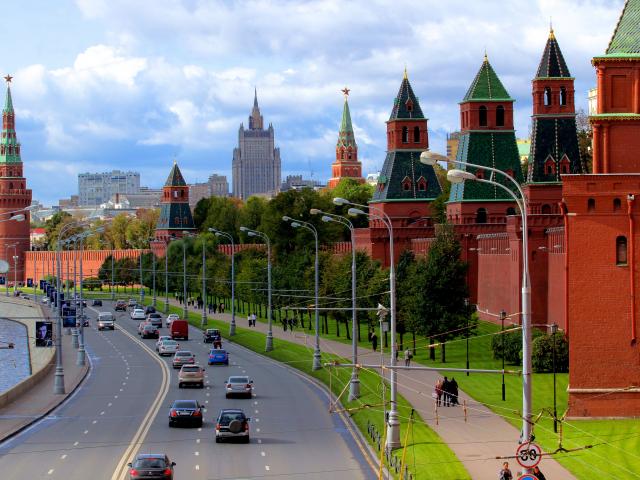
Among other things, the law required foreign missionaries to have a permit to evangelize. Also, reading your Bible, singing or simply praying outside a registered church, even in a home, became illegal.
Roman Lunkin is a lawyer with the Slavic Center for Law and Justice, the Russian counterpart of the American Center for Law and Justice, a group that tackles religious freedom cases around the world.
"The law inflicted serious damage because suddenly many Christians feared that just talking about faith or sharing with others about God was a crime," Lunkin told CBN News in Moscow.
Andrei Desnitsky, a prominent Russian commentator, told CBN News that the "law tells us not to do anything that can be called a "missionary activity," including saying, 'I believe in Jesus' for instance."
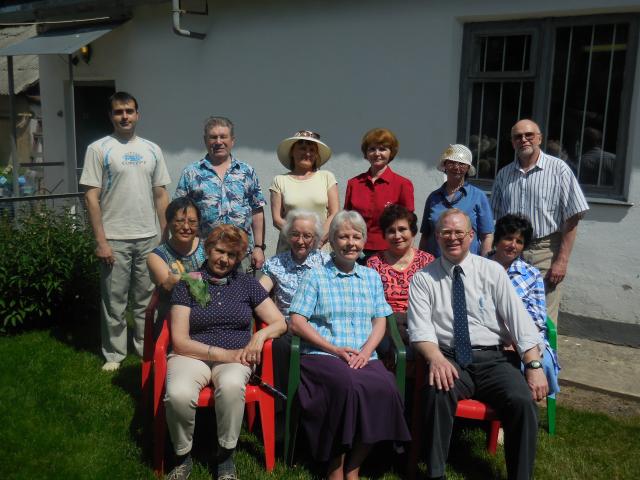
Supporters insist the law is necessary to confront terrorism, especially acts perpetrated by radical Muslims.
But Rakhuba believers there's a more sinister agenda.
"The Russian authorities are trying to restrict the Protestant and evangelical movements and stop them from spreading their influence and the message of the Gospel," Rakhuba claimed.
A Rude Awakening for the Ossewaardes
Back in Oryol, more than three weeks after the law's passage, Ossewaarde was home preaching, when Russian officers suddenly appeared.
"These three policemen walked right into our house where we meet and have our services," Ossewaarde told CBN News.
His wife snapped these pictures of the plainclothes officers.
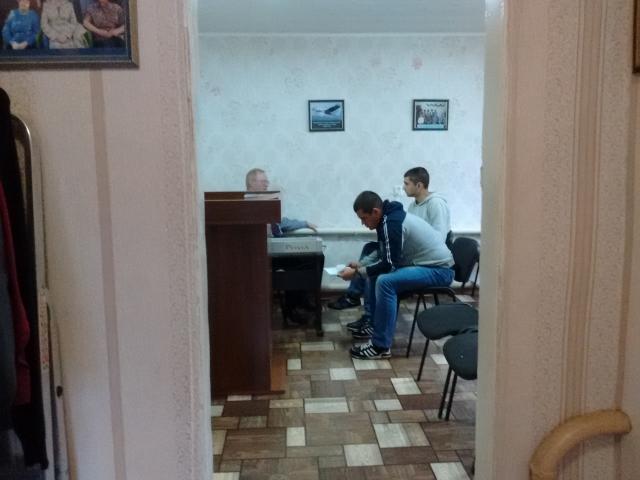
"They [police officers] didn't knock on the door. They just walked in," she recalled.
They waited for Ossewaarde to finish his sermon, then started interrogating everyone.
"They [police] asked them [congregation] 'what are you doing here?' What does this guy [Ossewaarde] do here?'" Ossewaarde recalled.
Hours later, Ossewaarde was taken to the police station and says he "was charged with illegal missionary activity."

He then became the first American convicted under the new law.
Ossewaarde was fined $640 for holding religious services in home, as well as putting up posters in the community advertising for those meetings.
He appealed twice before a local court and lost. And he's not alone.
Lunkin, who represents Ossewaarde, says almost three dozen people, mostly Russians, have fallen prey to the law.
"Jehovah's Witnesses, Scientologists and Mormons have also been targeted," Lunkin said.
And just last month, a Russian yoga instructor was arrested for "illegal missionary activity."
But there's one group that's been left alone.
Russian Orthodox Church

The law is unlikely to affect the Orthodox Church, which some 70 percent of Russians say they belong to.
"Never, never, never, [will the Orthodox Church be affected] because now the Russian Orthodox Church is closely associated with the state," Desnitsky told CBN News.
Desnitsky, who is Russian Orthodox, says there are growing numbers within his church that see all non-Orthodox Christians as cults or foreign spies, and he's not happy about it.
"For some, Protestants are, if not enemies, then potential danger, so they need some containing," Desnitsky explained.
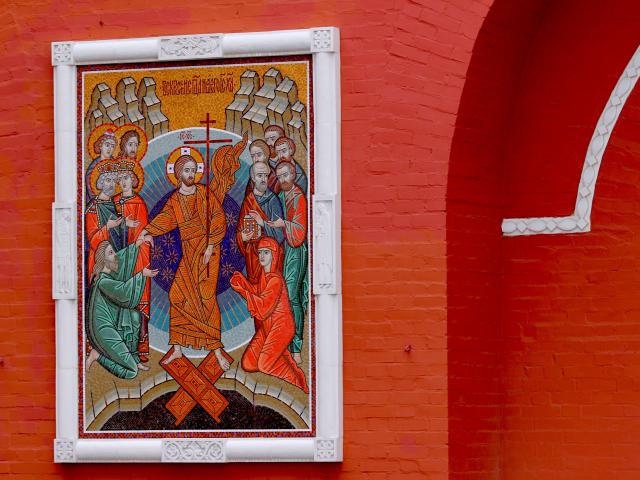
Ossewaarde pointed out this interesting fact: "The word 'Orthodox' in Russia means 'The proper way to glorify God' – which implies that every other way is improper," warned Ossewaarde, who is fluent in Russian.
The Russian Orthodox Church has a powerful ally in Vladimir Putin. The president has elevated the church's prominence and influence in recent years.
In fact, in some corners of Russian society, the Orthodox Church is considered the national church.
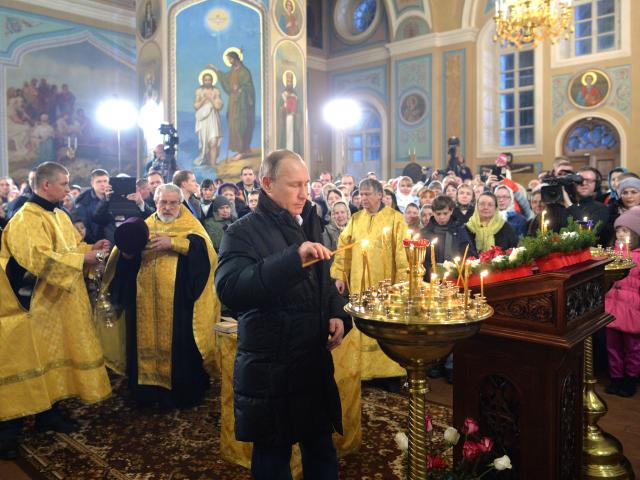
"This idea is being propagated by mass media, society, and, unfortunately, by the Orthodox Church and the government," Rahkuba warned.
For Ossewaarde, this is a fight for all non-Orthodox faiths to have the right to practice their beliefs freely in Russia.
"If I don't have the right to sit in my own house with my friends and read the Bible and pray then nobody has that right in this country, whether they are Russian citizens or foreign visitors."
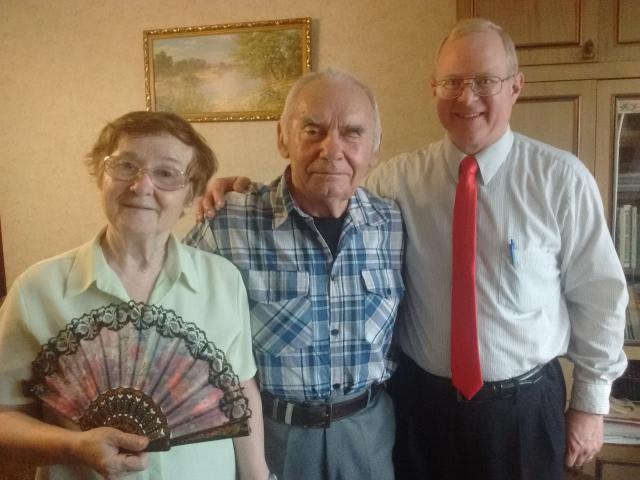
For now, the Ossewaarde's have stopped holding church services in their home while they appeal his conviction before Russia's Supreme Court.




